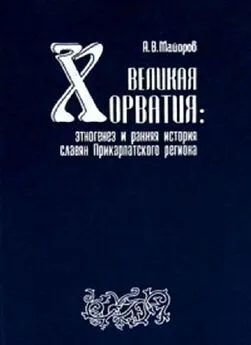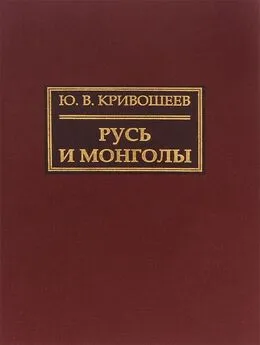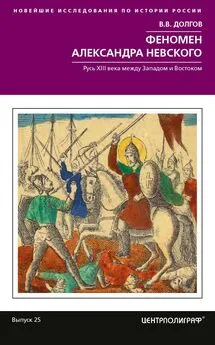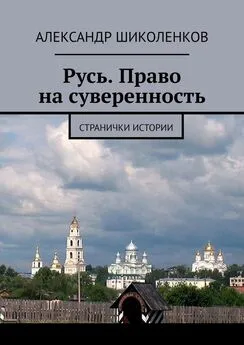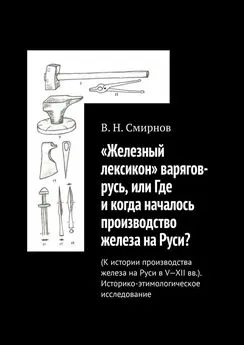Александр Майоров - Русь, Византия и Западная Европа: Из истории внешнеполитических и культурных связей XII—XIII вв.
- Название:Русь, Византия и Западная Европа: Из истории внешнеполитических и культурных связей XII—XIII вв.
- Автор:
- Жанр:
- Издательство:Дмитрий Буланин
- Год:2011
- Город:СПб.
- ISBN:978-5-86007-650-1
- Рейтинг:
- Избранное:Добавить в избранное
-
Отзывы:
-
Ваша оценка:
Александр Майоров - Русь, Византия и Западная Европа: Из истории внешнеполитических и культурных связей XII—XIII вв. краткое содержание
Русь, Византия и Западная Европа: Из истории внешнеполитических и культурных связей XII—XIII вв. - читать онлайн бесплатно полную версию (весь текст целиком)
Интервал:
Закладка:
ИЗ— Исторические записки (М.)
ИОРЯС— Известия Отделения русского языка и словесности Императорской Академии наук (СПб.)
ИСССР— История СССР (М.)
КСИА АН СССР— Краткие сообщения Института археологии Академии наук СССР
КСИИМК— Краткие сообщения Института истории материальной культуры РАН
ЛХ— Летописи и хроники
НИС— Новгородский исторический сборник
ОИ— Отечественная история (М.)
ПБПВ— Письма и бумаги Петра Великого
ПВЛ— Повесть временных лет
ПК— Памятники культуры. Новые открытия. Ежегодник
ПЛДР— Памятники литературы Древней Руси
ПР— Правда Русская
ПРП— Памятники русского права
ПС— Палестинский сборник / Православный палестинский сборник
ПСРЛ— Полное собрание русских летописей
РИБ— Русская историческая библиотека
САИ— Свод археологических источников
Сб. РИО— Сборник Русского исторического общества
СККДР— Словарь книжников и книжности Древней Руси
СлДРЯз XI–XIV вв. — Словарь древнерусского языка XI–XIV вв.
СлРЯз XI–XVII вв. — Словарь русского языка XI–XVII вв.
СлРЯз XVIII в. — Словарь русского языка XVIII в.
СС— Советское славяноведение
ТОДЛР— Труды Отдела древнерусской литературы Института русской литературы (Пушкинский Дом) РАН
УІЖ— Український історичний журнал (Київ)
ЭО— Этнографическое обозрение
BF— Byzantinische Forschungen
BMGS— Byzantine and Modern Greek Studies
BP— Balcanica Posnaniensia. Acta et Studia
BS— Byzantinoslavica
BZ— Byzantinische Zeitschrift
CDA— Codex diplomaticus Arpadianus Continuatus / Ed. G. Wenzel
CDERB— Codex diplomaticus et epistolaris regni Bohemiae
CDH— Codex diplomaticus Hungariae ecclesiasticus ac civilis / Ed. G. Fejer
ÉB— Études balkaniques
FRA— Fontes rerum Austriacarum. Diplomataria et acta.
HRM— Historia Russiae Monumenta / Ab. A.J. Turgenev
JGO— Jahrbücher fur Geschichte Osteuropas
KH— Kwartalnik Historyczny
LMA— Lexikon des Mittelalters
MGH. SS— Monumenta Germaniae Historica. Scriptores
MPH— Monumenta Poloniae Historica
MP V— Monumenta Poloniae Vaticana (Analecta Vaticana, 1202–1366) / Ed. J. Ptaśnik
MSHSM. SS— Monumenta spectantia historiam Slavorum meridionalium. Scriptores
ODB— The Oxford Dictionary of Byzantium
PL— Patrologiae cursus Completus. Patrologiae latinae / Ed. J.P. Migne
RA— Rossica antiqua. Исследования и материалы
RÉB— Revue des études byzantines
RÉS— Revue des études slaves
RIS— Rerum Italicarum Scriptores
RMS— Reading Medieval Studies
SK— Seminarium Kondakovianum
SO— Slavia Orientalis
SSS— Słownik starożytności Słowiańskich. Encykłopedyczny zarys kultury słowian od zcasów najdawniejszych
TM— Travaux et Mémoires. Centre de recherches d'histoire et civilisation de Byzance.
VMH— Vetera Monumenta Historica Hungariam sacram illustrantia maximam partem nondum edita ex tabulariis vaticanis / Ed. A. Theiner
VMSM— Vetera Monumenta Slavorum meridionalium / Ed. A. Theiner
Summary
Political and cultural connections between Rus', Byzantium and Western Europe achieved much significance to the end of the 12th c. — beginning of the 13th c. First of all, they can be seen in home and foreign policy of Roman Mstislavich, the prince of Galich and Volyn.
The thing of great interest for the historians is Roman's project of «good order» delivered at the year of 1203 by V.N. Tatischev, who used the old Novgorod chronicle in his work. There are no mentions about the project in the Kiev and the Vladimir of Suzdal writings since the princes ruling there were hostile to Roman's idea to elect the Great Prince of Kiev.
All the text of the report on Roman's project is written on the new (late) folios of Academician ms of Russian History. Thanks to the writing manner (increasing of number of lines, decreasing of the size of letters and the space in between) the text of these leaves is almost one and the half larger than the normal page of the manuscript. But in spite of all the devices used by the copyist one couldn't put the complete text of the report on the project on the newly written leaves. It had to be the previous text of the same contents exempted in the process of copying. It means that Tatischev had the information about the project at the very beginning of his work with the 1st variant of the Russian History and therefore it cannot be thought to be the later fiction.
It couldn't happen by chance that Roman's reformation plans reflected the order of election of the superior ruler and some other political institutions of the Holy Roman Empire. The prince of Galich and Volyn suggested establishing the «good order» similar to «the other good ordered states» meaning without doubt the order of election of the German King and the Emperor established in the beginning of the 13th c. with the participation of the board of six Empire princes which was equal to the number of «the elder princes» who were to elect the Great Prince of Kiev according to Roman's project.
Roman Mstislavich had the immediate contacts with the German rulers who took part in the struggle for power in the Empire, especially with king Philip the Schwab and Hermann, landgrave of Thuringia. St. Peter's monastery in Erfurt, which played noticeable role in the competition between the Stauffens and the Velfs, was also connected with the prince of Galich and Volyn and he donated large sums to the monastery, probably during a personal visit.
The union of the Stauffens with the prince of Galich and Volyn is testified by Alberick de Trois Fontain saying in his Chronic that the last Roman's campaign he perished in was aimed to Saxony (1205). Dwellers of the distant Cistercian monastery could know about Roman's campaign thanks to the wide contacts, good knowledge of the European policy and close links with Saxony and Minor Poland Roman marched through.
One cannot accept the version of war Roman waged against Polish princes Leshko and Conrad suggested by Jan Dlugos who mixed the circumstances of the campaign of 1205 with that of the other times. Nevertheless one cannot deny completely the decision by the prince of Galich and Volyn to invade Poland and capture two Polish cities (reported about in the Russian chronicles) influenced by some special reasons rooted in the Polish-Russian relations of that time.
The information on the Papal embassy to Galich with the offer of the royal crown to Roman Mstislavich in exchange of the Union with Rome written in Russian History by Tatichev at the year of 1204 cannot be denied. The idea of Tatichev's practicing imitating of the chronicle entries proposed by some modern scientists is not confirmed. The main instrument of verification the information on the Papal embassy is still its correspondence to the approved data about eastern policy of the Roman Curia during the pontificate of Innocent III. One cannot doubt the persistent will of the Pope to submit the Orthodox Russian Church after the conquest of Constantinople to the jurisdiction of Rome.
The relations with Byzantium took the most important place in the foreign policy of Roman Mstislavich. According to History by Jan Dlugos and the Gustyn Chronicle the overthrown Bizantine emperor Alexios III after his flight from Constantinople in 1203 spent some time in Galich where he met Roman. The fact is confirmed by the Italian chronicler of the second part of the 13th — the beginning of the 14th c. Bartholomew del Fiadoni (Ptolemy of Lukke). Fiadoni who was born c. 1227, could have associated with the alive participants of the events. Being the librarian at the court of John XXII he was well informed of the foreign policy of the Pope and he was highly interested in the details of the 4th Crusade. Besides that Fiadoni has been the bishop of Torcello (the island and the town in the Venetian Lagoon), which citizens took part together with Venetians in the conquest of Constantinople for many years.
The known story of exile of Alexios III, of his visit to Bulgaria and the negotiations with king Kaloian testify the possibility of the contacts with the prince of Galich and Volyn as well. This is confirmed with the information about military and political union of Alexios and Roman and the traditionally active role of Galich in the approval of the pretenders to the royal thrones of Byzantium and Bulgaria also.
It was Roman Mstislavich who became the main military ally of the Byzantine Empire in the beginning of the 13th c. The Romayan State was going through the sever political crisis aroused by Serbian and Bulgarian uprising and the crushing attacks by Polovtsy. According to Niceta Choniate it was possible to stop the nomad aggression thanks to the Galich aid only. The circumstances and the time of Roman's campaign in the story by Choniate are just the same as in the Russian chronicles which report the steppe campaigns of the Galich and Volyn prince.
The outstanding role of Roman Mstislavich in the struggle with the enemies of the Empire is reported in the other Byzantine sources besides Choniate, which are practically unknown to the modern Russian historians. These are the tale of Theodor Skytariote and the poem by Ephrem Ennius. Both authors repeat Choniate mainly, but they add some new details.
All the Byzantine sources give the title of «hegemon Galiciae». The term «hegemon» unlike the other Byzantine titles of the Russian princes meant «the ally and the relative (or in-law) of the Emperor». The result of the union of Alexios and Roman was also the stabilization of the relations with the Russian population in the Lower Dnieper and the Lower Dniestr («the branch of the Tauro-scythes» of «Bordona», as it called in the Byzantine sources).
Читать дальшеИнтервал:
Закладка:
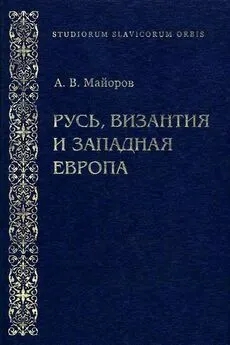
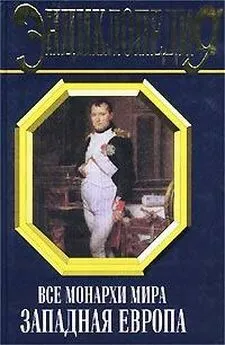
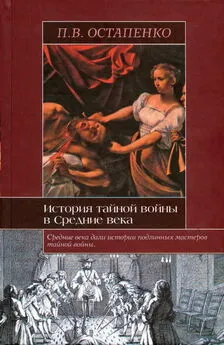
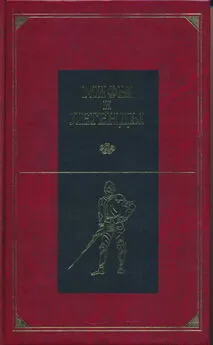
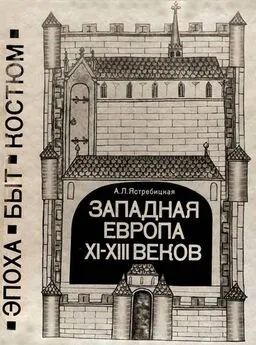
![Анатолий Фоменко - Книга 1. Античность — это Средневековье[Миражи в истории. Троянская война была в XIII веке н.э. Евангельские события XII века н.э. и их отражения в истории XI века]](/books/1124977/anatolij-fomenko-kniga-1-antichnost-eto-srednev.webp)
